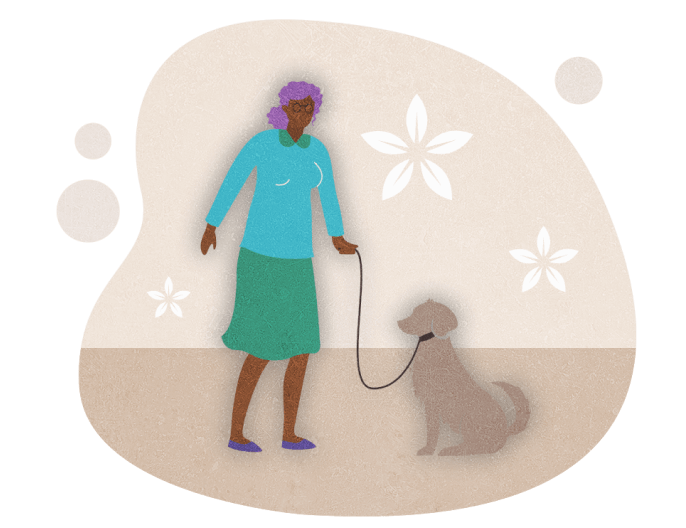How can animals benefit those with dementia
![]()

The healing power of pets: how animals can improve the lives of people with dementia
Dementia is a difficult and often heart-breaking disease for both sufferers and their loved ones. The degenerative nature of the illness not only affects the person’s cognitive abilities but also impacts their physical and emotional wellbeing. However, recent studies have shown that animal-assisted therapy or pet therapy can help to alleviate some of the symptoms and improve the quality of life of those living with dementia. In this blog, we will explore the benefits of pet therapy and how animals can make a positive impact on the lives of those living with dementia.
Reduced agitation and stress
Those with dementia often experience anxiety and agitation, leading to challenging behaviours that can be difficult for carers to manage. Regular interactions with pets can help to decrease agitation and stress levels, leading to more relaxed behaviour. Petting a dog or cat can also help to reduce physical agitation, lower blood pressure, and promote relaxation, eliciting a calming effect.
Improved social interaction
Dementia can cause people to withdraw from social interactions and become lonely. Owning a pet or participating in pet therapy sessions gives those with dementia a reason to interact with others and can help them open up. Animals can be great conversation starters and offer a sense of purpose and companionship, boosting their self-esteem and confidence.
Stimulates memory
Those with dementia often struggle with memory issues. Engaging daily with a pet stimulates memory and can improve cognitive function. Feeding, grooming, and playing with a pet can help create a structured routine and enhance a sense of familiarity and comfort that can help reignite fond memories. Daily structure and routines are so important in establishing good daily orientation, which is vital to maintain a sense of person, place, and time.
Physical exercise and mobility
Taking pets for a walk or engaging in playtime can give those with dementia a physical workout, improving cardiovascular health, and strengthening muscles. Regular physical exercise can also help maintain mobility and prevent muscle atrophy, which is a common ailment among those of advancing age.
Improved mood
Pets have been known to offer unconditional love and joy to their owners, which can improve the mood of those living with dementia. Spending time with a pet releases hormones like oxytocin and dopamine, which have mood-boosting properties. It affords a positive distraction from the anxieties of illness, making those with dementia feel happy and contented.
Overall, the benefits of pet therapy for those living with dementia are vast and life-changing, helping to improve their cognitive abilities, physical health, and emotional wellbeing. If you or a loved one is living with dementia, we encourage you to explore pet therapy as a supplemental treatment.
Discuss this option with those close to you to determine if it is a good fit for your individual needs. It may also be that you need some support caring for a pet at times. With the unconditional love and positive interactions that pets bring, it could be the quality of life change that you or your loved one needs. Call our team on 0208 857 7717 to learn more about the benefits.
Speak to our team
We’re always happy to have a friendly, informal chat. Call 0208 857 7717 to discuss your live-in care requirements with a member of our team.
